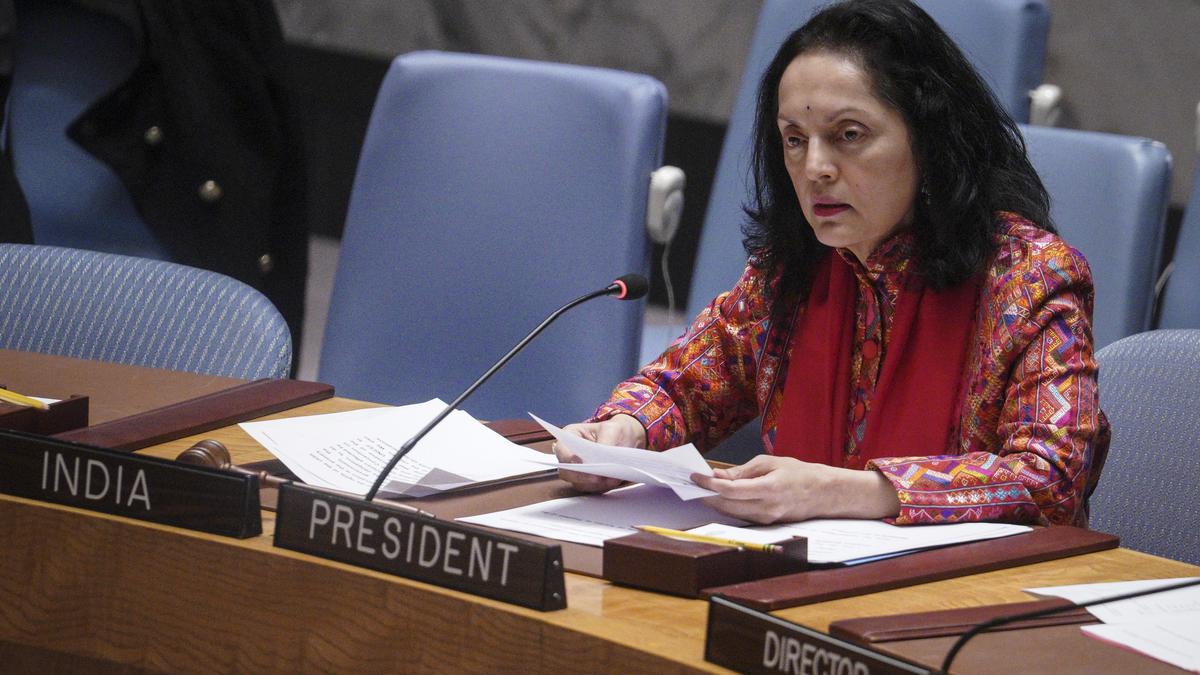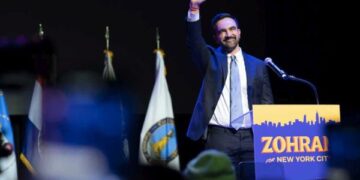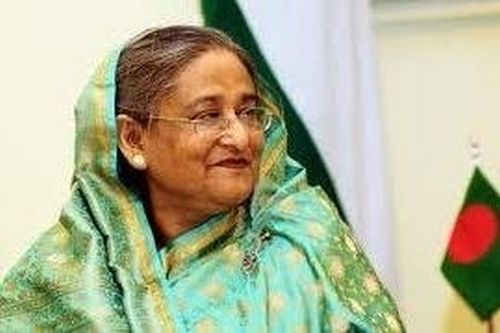United Nations: India is right in demanding a “major course correction” of the UN Security Council when the world’s largest democracy is kept out of the global decision making, the country’s UN envoy has said.
India has been at the forefront of the years-long efforts to reform the Security Council, saying it rightly deserved a place as a permanent member of the United Nations.
Currently, the UNSC has five permanent members – China, France, Russia, the UK and the US. Only a permanent member has the power to veto any substantive resolution.
“India was a founding signatory to the UN Charter when it was signed on June 26, 1945, in San Francisco. Seventy-seven years later, when we see the world’s largest democracy, along with entire continents of Africa and Latin America, being kept out of global decision making, we rightly call for a major course correction,” India’s Permanent Representative to the UN Ambassador Ruchira Kamboj said in the UN Security Council on Monday.
She was addressing the Security Council’s open debate on ‘Effective Multilateralism through the Defense of the Principles of UN Charter’ held under the Council Presidency of permanent member Russia.
She said even as effective multilateralism should prevail, “we are collectively aware of the inadequacies of the multilateral system that has failed to respond to contemporary challenges, whether it be the Covid-19 pandemic or the ongoing conflict in Ukraine.”
“Moreover, significant global challenges such as terrorism, radicalism, climate justice and climate action, disruptive non-state actors, debt and several geopolitical contestations continue to undermine global peace and security,” Kamboj said.
She outlined three pressing questions which she said the debate should address. India questioned whether “effective multilateralism” can be practised by defending a charter that “makes five nations more equal than others and provides to each of those five the power to ignore the collective will of the remaining 188 member states”, referring to the remaining membership in the 193-nation UN.
Kamboj was referring to the five permanent members of the Security Council.
She asserted that the “starting premise” has to be widening the representation of the core institution of the Security Council to more developing countries for its effectiveness and credibility.
“If we continue to perpetuate the 1945 anachronistic mindset, we will continue to lose the faith our people have in the United Nations,” she said.
“Can we actually promote ‘effective multilateralism’ through defending a UN Charter where two of the permanent members have not been able to get even their names changed?” she asked, in a reference to China and Russia.
In the UN Charter, ‘The Republic of China’ is still used as the name for China, now officially known as The People’s Republic of China while the former nomenclature “the Union of Soviet Socialist Republics” is used for Russia.
Kamboj said Article 109 of the UN Charter never wanted it to be cast in stone for perpetuity, and that’s why it had recommended a General Review Conference of the Charter to be held before the 10th UN General Assembly.
However, she said 77 years later, “We are nowhere closer to making that a reality.”
Article 109 states that a General Conference of the Members of the United Nations for the purpose of reviewing the present Charter may be held at a date and place to be fixed by a two-thirds vote of the members of the General Assembly and by a vote of any nine members of the Security Council.
Any alteration of the present Charter recommended by a two-thirds vote of the conference shall take effect when ratified in accordance with their respective constitutional processes by two-thirds of the Members of the United Nations including all the permanent members of the Security Council.
It also states that if such a conference has not been held before the 10th annual session of the General Assembly following the coming into force of the present Charter, the proposal to call such a conference shall be placed on the agenda of that session of the General Assembly, and the conference shall be held if so decided by a majority vote of the members of the General Assembly and by a vote of any seven members of the Security Council.
Kamboj questioned whether the international community can practise “multilateralism effectively” in the 21st century through a body that celebrates the principle “to the victor belong the spoils” privileged more than three generations ago.
“How much longer will we keep decorating ‘effective’ multilateralism with the intent of reforming multilateralism with only words and mere lip service?” she asked.
Kamboj referred to remarks made by External Affairs Minister S Jaishankar, who said in December last year during India’s Presidency of the Council that “reform is the need of the day.”
“And I am confident that the Global South especially shares India’s determination to persevere,” he had said.
“Multilateral institutions rarely die. They simply fade into irrelevance. Once upon a time, there was a very long distance between the “Model UN” role play in colleges and universities and the real world. Is that distance shrinking?” Kamboj asked.
In his remarks at the debate presided over by Russian Foreign Minister Sergey Lavrov, UN Secretary-General Antonio Guterres said that Member States are in the lead on adapting intergovernmental organs to meet changing needs.
“A majority now acknowledge that the Security Council itself would benefit from reforms that reflect today’s geopolitical reality. The same is true for the Bretton Woods institutions. They do not reflect the reality of today’s global economy,” Guterres said.





